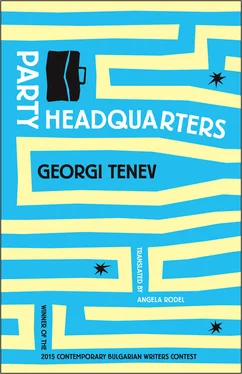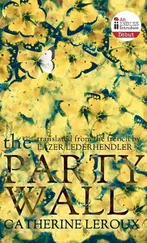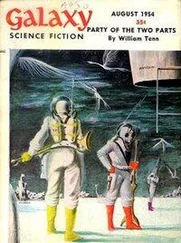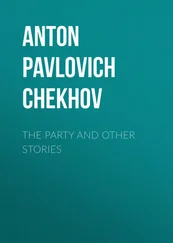But I didn’t know how to continue. I couldn’t see how simple the ending was:
“Yes, infinite. And after every happy event gapes the end of happiness. Lonely people are lonely only in restricted space, but in infinity — no loneliness exists there, either. There, horror reigns.”
I understand why she’s crying like that, why she doesn’t leave. They turn out the lights, night slithers across the marble. But she continues standing there, not moving. She must be remembering something, the two of them have their memories — here’s one historical fact, the only one that cannot be changed. I admit, after everything that’s happened, that fate in all its stubbornness always manages to place me — sometimes even on my knees holding a bouquet of flowers — in front of some incredibly trifling yet incorrigible detail, such as this one: she is nevertheless his daughter .
Nostalgia
She remembered how during the storm, the somersaulting waves would surge over the bridge, pouring onto the shore. On such days she wasn’t allowed to go near the sea. The sand, wet not from rain, but from drops of flying foam. She had gotten used to it, there were always lots of guards around. The men often changed and she persistently asked them:
“What’s your name?”
The man shifts his startled gaze from the girl in the red or white dress with white or red polka-dots. The unknown man looks at the other man, whom she knows. Her father, the man whom she knows, nods. The stranger smiles awkwardly, but takes the gesture as an order. For what’s probably the first time since he’s started the job, he has to say his first name:
“Svilen.”
“Dimitar.” (Or perhaps Mitko , if it occurs to him to answer her in the way people usually talk to little girls.)
“Asen.”
“Atanas.”
“Valyo.”
“Svilen.” (Svilen again — strangely enough, there are two Svilens.)
Most of them don’t have children yet, most sergeants from the security forces are quite young, “unattached,” as is written in their official documents. More like soldiers than employees. With a small red card containing all the important information, in a holder with square flaps, like a pleather butterfly, kept in an inside pocket. From the wing’s crease dangles a thin, sturdy string with a small safety pin at the end, which is used to attach the officer’s ID to the lining of his jacket.
Once, a little piece of shell gets stuck under her fingernail. The girl is crying. Dimitar or Valentin or Svilen pulls out his ID card, with “Safety and Security” emblazoned across the top. He unfastens the pin and with its tip extracts the painful chip of mica. His fingers tremble slightly, afraid of hurting her. This fear for her envelops her. The painful particle releases her, returns to the other harmless grains of sand.
She remembers, her childhood is a string of points, of childish joys and pains. Childhood is an invisible projection in the rearview mirror. No big jolts, no out-of-the-ordinary pain, there was always someone to look after her. A breakfast of watermelon, soft feta cheese. The gate blocking the road at the end of the residence, beyond which entrance was forbidden. In the big, convex, circular mirror mounted on a post in the corner, both ends of the road were visible, crescent wings. No one came or went. No one arrived, besides the little girl in the polka-dot dress.
In her memory, there are dark and light shadows, spots of sun. She digs in with her fingers and lifts them up like a piece of cloth, flat carpets, under which there is nothing. Yet something did happen, something important. Something more than just a jab, more than a prick to the skin, a sliver in the tip of her finger. She places her hand in her palm, lies down for a while, tries to remember. But can’t. In such moments she says come here and I enter, but she can’t remember what, she can’t discover it.
Now the residence is closed, empty, sealed up. The traces of its previous owner have evaporated, but the walls are still standing, the stones with the imprints of shells and the fossilized bodies of shrimp. She arrives here again, this time in cut-off shorts and with a backpack on her back, sandals on her dusty feet. She goes beyond, into the interior. The gate is rusty and probably doesn’t work anymore. Of the guardhouse, all that remains is a shapely silhouette, windows boarded up, wire on the posts alongside it that at one time fenced off the road. Barbed wire on the grass, piled up in a rusty heap, a dog barking hoarsely. There is no guard, or at least there’s none in sight. Yet going in is dangerous, as well as pointless — now the walls guard themselves, the stones easily give way underfoot. What a landslide the sandy cactus garden has become. Above the wings of the terraces with a view of the sea, rusty bedsprings jut out, the unfinished frame of a support wall, abandoned in mid-construction. Foul-smelling water, colorless, streams beneath the cement slabs. The round mirror at the curve hangs broken, with only a single surviving triangle, like part of the imaginary face of a watch that at some point felt the light between dawn and dusk creep across it. An image remained there, somewhere between four and six o’clock, strewn with specks. From behind, from the reflection itself, little brownish flowers have dripped down like the legs of birds living in the bottom of the picture, in a mirror-image world. Somewhere there the foam has been swallowed up, the waves have been drained away, somersaulting over the quay — she seemed to catch a glimpse of dolphins’ bellies in the water — the past itself preserved in the craziest hours, between four and six in the afternoon. And one polka-dotted little girl with a dress of light and shadow — but her feet aren’t visible, standing on the other side of the reflection — nothing is visible except the tears clouding up her eyes.
Oh, how sad that wonderful past has turned out to be. Because there is nothing in it that you can grasp onto, nothing for you to keep.
She feels like creating life, having a child, a daughter or a boy, better a little girl — but why, what for? To repeat everything, to rehash it? Why would she do it, for whom? For herself, or. For herself, right?
This simple discovery stops the very drops in her eyes. It’s so empty inside that above such an abyss it’s even useless to cry — there’s simply nowhere for the tears to fall. There’s no bottom.
It’s clear to me— nothing should remain of him. In the sense that this very nothing should be buried and destroyed, this emptiness in which his image drowns time as if in a black hole.
Arranged in a square, fifty thousand one-hundred-euro bills — a million and a half — take up an area of one hundred and eighty square meters. Its symbolic, three-dimensional significance, however, can be far more electrifying.
He probably thinks he’s pulled a fast one, shoving that much money into my hands. He hopes my heart will soften up, made extra-mushy by the anesthesia of wealth so I’ll relent and release a respectable funerary sum. If for no other reason than to prevent him from appearing in my dreams. To leave him alone with the ground, consigned to eternity in a foreign city, as it were.
No, Comrade K-shev, that’s not going to happen. I know your plans, I know them deep down . And I know, like I said before, I understand very well why you’ve chosen the cemetery in Hamburg.
Because:
The Elba, deep down, invisibly erodes the slippery abutments along its banks. Down at the foundations, near the concrete, underwater capitals that support the docks’ pontoon skeleton — the longest pontoon structure in Europe — there the water finds cracks, twisting into eddies. It sucks down the dust of bodies from the ever-replenished supply of dead buried nearby in the four hundred hectares of the Ohlsdorf Cemetery, the largest burial park on the planet.
Читать дальше












